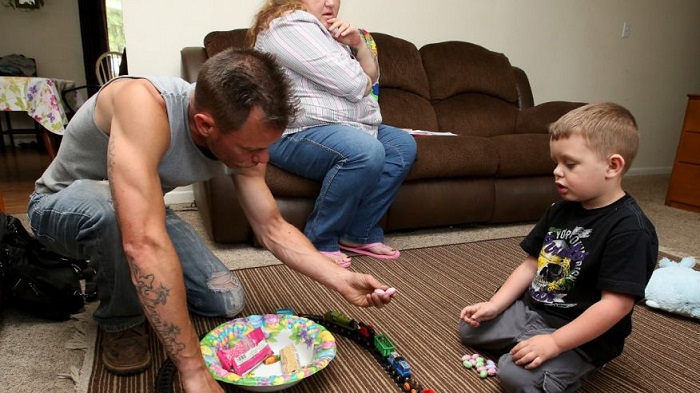“We often think about how recessions directly affect adults (e.g. their jobs, their 401k), but these economic downturns have trickle down effects that impact children’s health,” said lead author Vanessa Oddo, a researcher at Johns Hopkins Bloomberg School of Public Health in Baltimore.
“This study suggests that there are negative and potentially long-lasting health effects of an economic shock like the Great Recession on children,” Oddo told Reuters Health by email.
Low-income children are more likely to be obese than those from higher-income families and may be more vulnerable to health problems like diabetes, according to the Centers for Disease Control and Prevention.
To see how economic downturns might affect childhood obesity risk, the study team looked at indicators of economic change across California between 2008 and 2012, including unemployment levels and house foreclosures. The researchers also used data on the heights and weights of 1.7 million school-age children from the state department of education.
The average age of children in the study was 13 and more than half were Latino.
Researchers compared economic indicators at the county level and changes in each child’s body mass index (BMI), a measure of weight relative to height. During the study period, they calculated, for every 1 percent increase in unemployment in a community, local children saw a 14 percent increase in BMI.
The effect of unemployment on weight gain was more extreme for high-income and rural communities and for girls, according to the results in the Journal of Epidemiology and Community Health.
American Indian and Pacific Islander children also saw greater weight gain effects linked to unemployment.
For children in communities where people were losing their houses to foreclosure, hardship seemed to have the opposite effect on weight. Children saw a 3 percent drop in their risk of obesity for every 1 percent increase in foreclosures.
“We think that unemployment (resulting in decreased income) could render fruits and vegetables and other more healthful foods unaffordable. This would likely lead to increased consumption of cheaper, highly processed convenience foods (e.g. boxed macaroni and cheese),” Oddo said.
During recessions, she added, families might also be unable to afford to send children to after school sports or play, and communities might be forced to close parks or playgrounds, meaning that children would have fewer opportunities for exercise.
“Foreclosure is a more extreme form of hardship,” Oddo said, noting that families evicted from their homes might be forced to buy only the most basic staple foods and might lose weight as a result.
“It is increasingly evident that factors associated with poverty, including unemployment, housing instability, and food security, are related to child health,” said Dr. Laura Gottlieb of the University of California, San Francisco, who studies poverty and childhood obesity but was not involved in the new study.
Gottlieb noted in an email that the American Academy of Pediatrics Task Force on Poverty and Child Health has developed recommendations for policymakers, including the importance of funding food stamps, school lunches, and summer food programs for children.
Oddo said the health consequences of a recession can be very serious for children but there are ways to help. “During the Recession many policy makers wanted to cut spending. But it is important to keep in place social safety nets,” she said.
More about:
















































